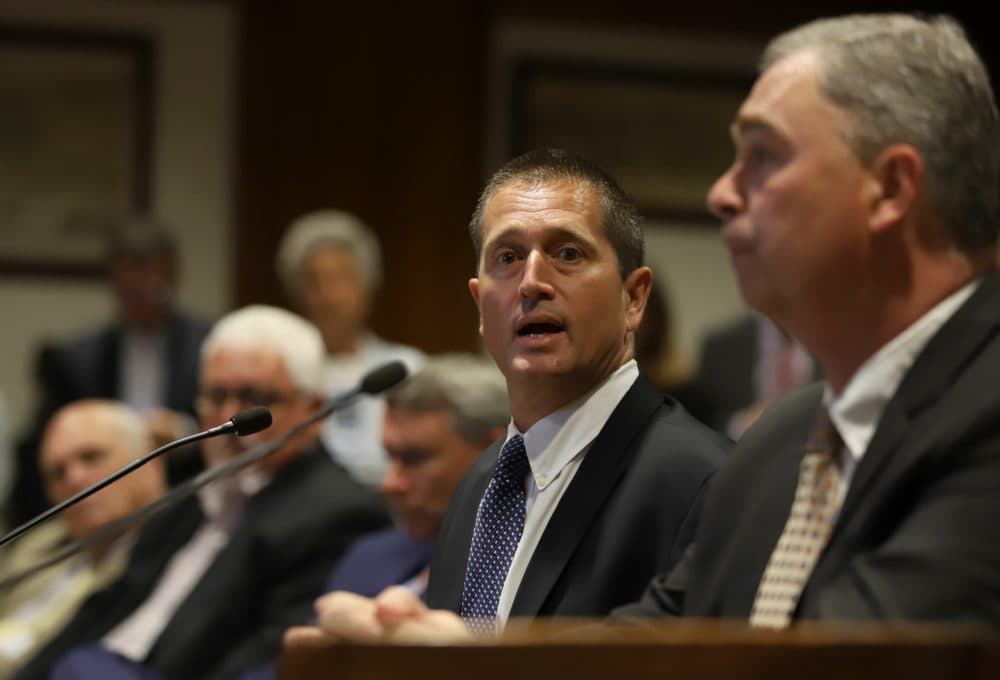Advertisement
As Fewer Teens Work Summer Jobs, Republican Lawmakers Propose Teen Minimum Wage

As high-school students begin their summer vacations, fewer teenagers in Massachusetts will be working part-time, seasonal jobs than in previous decades, part of an ongoing trend across the country.
Republican lawmakers, worried that minimum wage increases are further driving down teen employment rates, want to address the situation by allowing businesses to pay seasonal or part-time workers under the age of 18 less than adults, arguing that a "teen wage" is necessary to boost hiring.
"A lot of those teens learn from these first jobs and learn invaluable lessons about life and business," said Rep. Brad Hill, an Ipswich Republican, during a Joint Committee on Labor and Workforce Development hearing Tuesday. "We're now taking those opportunities away because our businesses can't afford to pay teens the higher wage."
Hill, the House assistant minority leader, filed one of several bills before the committee that would authorize a lower wage for workers younger than 18. His legislation (H 1637) would set that rate at $11 per hour, but only for teenagers who are employed for a period shorter than 90 days. Other bills would scale the youth wage to 80 percent the state minimum wage — currently at $12 and increasing to $15 by 2023 — or allow businesses to use the federal $7.25 per hour minimum wage for teenagers who work 20 hours or less every week.
Researchers have found that teenagers have held summer jobs at a significantly lower rate since 2000 when compared to previous decades, the result of a range of factors such as growth in additional school courses or internships during the summer and a decrease in the availability of part-time, unskilled work.
Hill pointed to the set of minimum-wage increases enacted under last year's so-called "grand bargain" as responsible, arguing that employers will opt not to pay the higher minimum wages for short-term seasonal positions. Eight years ago, he said, about 50 percent of teenagers had summer jobs, but that number has since declined to roughly 30 percent.
However, critics of the proposals argue that lowering wages is not essential for teenagers to find meaningful employment and that doing so would harm young workers who contribute crucial income to family budgets.
During debate last year over the broader minimum wage-increase that became part of the "grand bargain" law, groups such as the Raise Up Massachusetts coalition pushed back against the idea.
"Creating a system in which employers can pay teens less than the minimum wage can reduce the earnings of young workers — many of whom provide important income for their families and, in a number of cases, are working their way through school," the Massachusetts Budget and Policy Center wrote in a December 2017 report. "A subminimum wage policy could also be harmful to adults and seniors who could be replaced by teens working at a subminimum wage, overall harming the employment prospects of older adults."
Advertisement
In his district, Hill said, automation has been taking over, from Walmart installing self-checkout lines to McDonald's accepting orders at a computer kiosk.
"The cost of doing business in Massachusetts is so high for our mom and pop stores that they can't afford to either stay in business or to hire the very community that I'm trying to reach, which is our young people," Hill said.
The Republican push drew support from several business owners and advocates who attended Tuesday's hearing. Bob Luz, president of the Massachusetts Restaurant Association, did not explicitly endorse one of the proposals over the others, but said a teen wage was "desperately needed."
"If we continue to inhibit teenagers from getting the first job — and our industry has the most of those folks, one in three get their first job in a restaurant — they'll never be able to get the second job," he said.
Beverly City Council President Paul Guanci, who owns Super Sub Shop, accompanied Hill during the hearing and told lawmakers that he has had to scale back how many high-school students he hires as part-time employees because of the wage increase.
He stressed that he supports a $15 minimum wage for adult workers, but believes a lower wage requirement for teenagers would help employers across the state.
"It's never been more difficult to run a small business," he said. "A big part of it is the minimum wage."